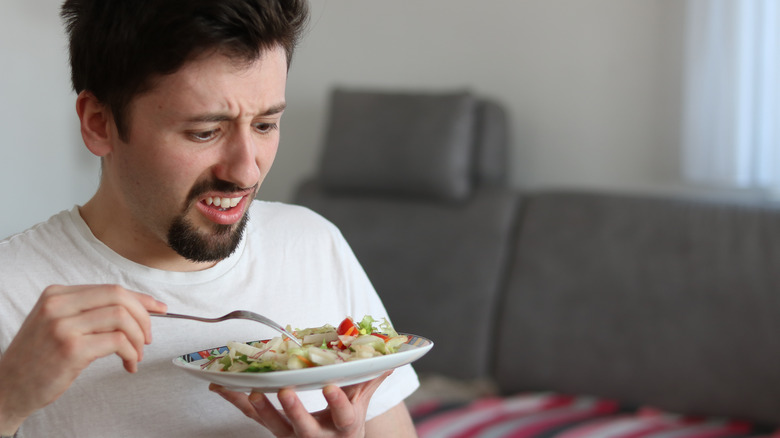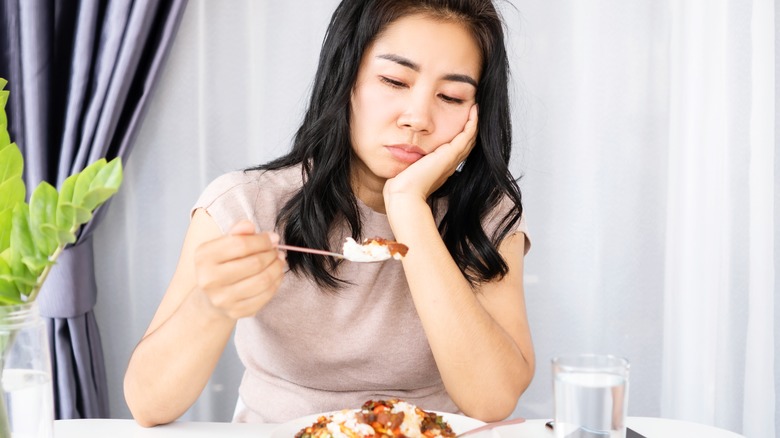How Does Cibophobia Differ From A Traditional Eating Disorder?
Of all the different types of anxiety disorders, specific phobias are the most common, according to the American Psychiatric Association. Phobias are estimated to affect between 8% and 12% of American adults, and some may go to great lengths to avoid facing their phobia triggers. These triggers can range from social situations, such as large crowds or public speaking, to perceived threats and physical safety, like snakes, severe weather, or flying, explains Medical News Today.
In some cases, phobias may even focus on everyday stimuli and objects, including food, according to Healthline. Cibophobia is the term used to describe a deep fear of food and drinks. Some people with the condition experience anxiety related to several foods, while others are triggered by only one type of food.
A fear of food may sound similar to restrictive eating disorders, such as anorexia nervosa. However, cibophobia shouldn't be mistaken for a traditional eating disorder.
The line between a fear of food and a fear of eating
Even though food offers essential nutrients and energy needed to keep us alive, it can appear scary or even life-threatening to those with cibophobia. People with the phobia are often afraid of foods that they believe will make them sick (per Healthline). This can include perishable foods that spoil easily, undercooked foods, leftovers, and expired foods. In some cases, people with cibophobia may also be afraid of consuming any food that was prepared by someone else.
Usually at the heart of cibophobia is a fear of getting a foodborne illness. This differs from eating disorders, like anorexia nervosa, which the Eating Recovery Center explains are often rooted in perfectionism, body image issues, and social pressures. A food phobia should also not be mistaken for orthorexia, an eating disorder marked by an obsessive concern for eating "healthy" or "clean" (per National Eating Disorders Association).
However, cibophobia and eating disorders can overlap, and a strong revulsion toward certain foods may develop as part of disordered eating habits (per Clarity Clinic). Whether cibophobia occurs alone or in tandem with an eating disorder, treatment is available in the form of cognitive-behavior therapy and talk therapy with a professional.
If you need help with an eating disorder, or know someone who does, help is available. Visit the National Eating Disorders Association website or contact NEDA's Live Helpline at 1-800-931-2237. You can also receive 24/7 Crisis Support via text (send NEDA to 741-741).


